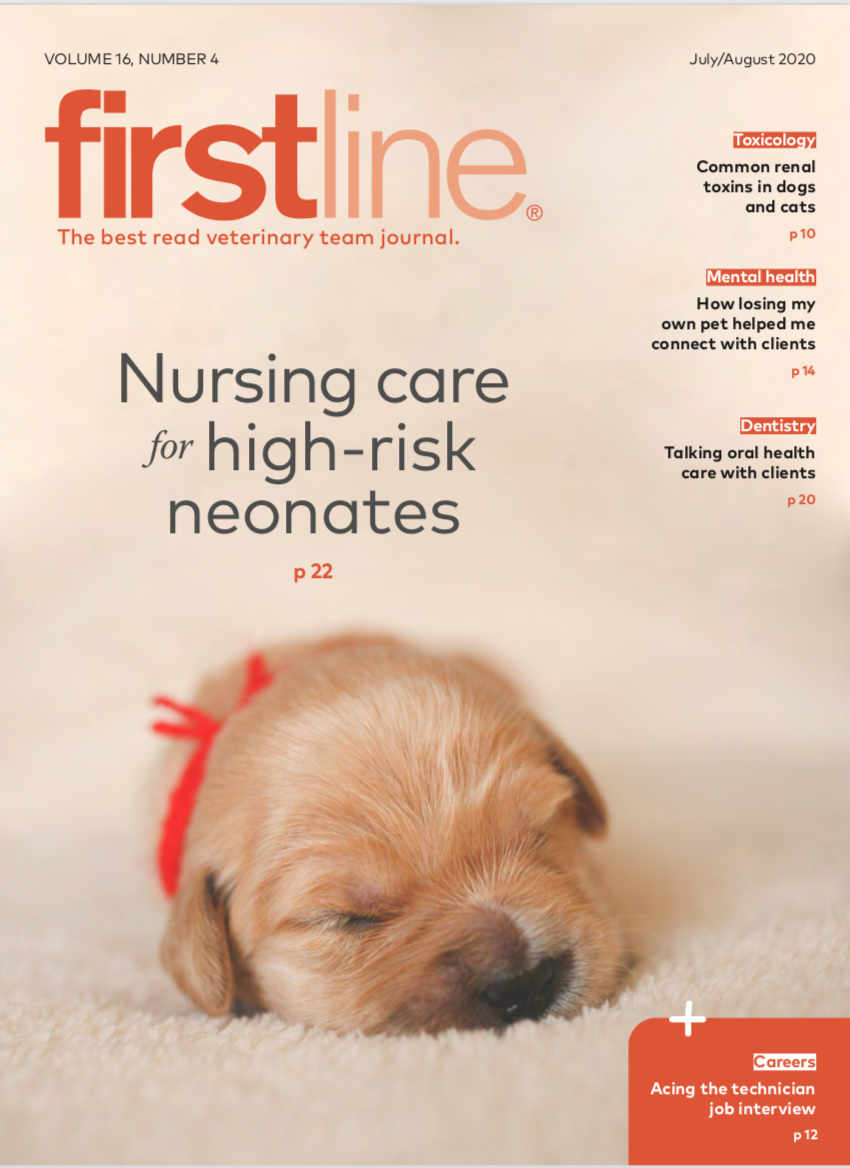Grief comes in many forms
Losing a pet is hard on owners and veterinarians alike, but knowing how grief works may help navigate the loss.
dodoardo / stock.adobe.com

As a longtime veterinarian, I've had to deal with grief. Grief when a pet receives a bad diagnosis and grief when that pet's life comes to an end. Recently, I wrote about how grief and love go hand in hand and how we should embrace grief as being a part of love. I believe that, but it got me to thinking about how we navigate that grief.
I was reminded of the work of Elisabeth Kübler-Ross, MD, in On Death and Dying and her book with David Kessler, On Grief and Grieving, which talk about the stages of grief. Kessler writes, “The stages … are responses to loss that many people have, but there is not a typical response to loss as there is no typical loss.” Grief is as unique as the person who is experiencing it.
I find that to be true in my experience with my clients and their pets.
The five stages of grief are: denial, anger, bargaining, depression and acceptance. Kessler writes that not everyone goes through all of the stages, and not everyone experiences them in the same order.
Denial is usually the first stage of grief, involving confusion and shock. It's our brain's way of guarding us from the emotions that will follow, and it causes us to avoid the reality of the situation until we have the capacity to really feel. When I lost my first dog as a young adult, I couldn't face the fact that I was going to have to make a decision to let her go.
Anger is what gives our grief structure and makes us feel stronger. When we feel anger towards another person, the situation or even God, it makes us feel more in control than the denial that feels so chaotic. Anger is the manifestation of underlying pain, and lashing out makes us feel more powerful in a situation where we might be powerless. While I've experienced personal anger when losing a pet, I've been on the receiving end of anger as a veterinarian when delivering bad news. I don't take it personally, because I know that it's a necessary part of the natural grieving process.
Bargaining, which is often mixed in with denial or anger, is the thinking that if only we'd done something different, this wouldn't be happening. We wish we'd brought the pet in earlier, paid closer attention or been there when they died. Veterinarians do some bargaining of their own when a severely ill pet is presented to us, and we think we may have been able to do more if we'd seen a pet sooner. Bargaining allows us to remain in the past and avoid reality, and it seems to crop up over and over again as we navigate grief. It's what makes us question our decision to euthanize and wonder if we chose the correct time or waited too long.
Once we've let go of the bargaining, we feel the true weight of the situation as depression. This isn't just feeling sad but really feeling lost. The realization that your pet is gone and is not coming back causes profound sadness, but that's necessary to get to the other side and move on to acceptance. There's no proper way to deal with this stage, but talking through our grief with a family member, friend, support group or therapist can help us navigate it. Remembering that pets are a significant part of our lives and not being ashamed to talk about it to others will help us progress beyond the depression and move into acceptance.
Finally, there's acceptance. It's not being OK with the loss or feeling good about it and moving on. It's about accepting the reality of your pet being gone but not forgotten. Accepting that life has changed and will be forever different going forward. I see acceptance in one way, as a veterinarian, when people adopt a new pet after a loss. They are not replacing the love that they had for the deceased pet, but they've chosen to love again. I personally spent a year without a dog after I lost both of my previous dogs within four months of each other. When I got to the point of acceptance and my house felt empty, I adopted my Sheltie, Trent. I will never forget my other two dogs, but I chose to open my heart to another.
I write about this subject not to make you feel sad but to help us all to feel supported and understood. There are people that pass judgment about grief surrounding pets and lack empathy when it comes to the choices surrounding pet care, illness and euthanasia.
Guilt, judgment and regret have no place in this discussion.
There is no correct way to lose a pet and no correct way to grieve.
Julie Cappel, DVM, works as a small animal and exotic pet veterinarian, leadership and life coach. She has been a practice owner for more than 20 years, running a four-doctor veterinary practice in Warren, Michigan.
